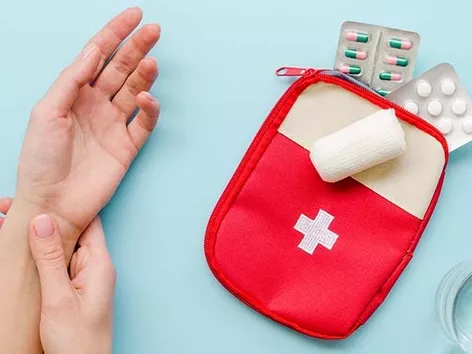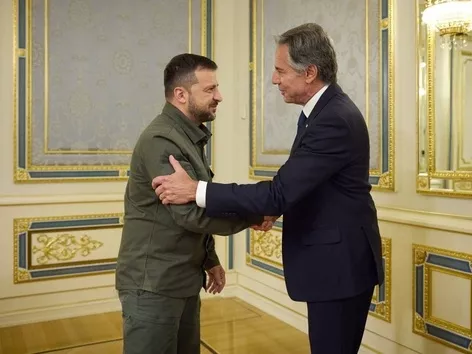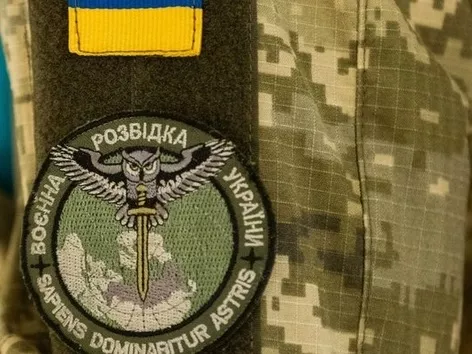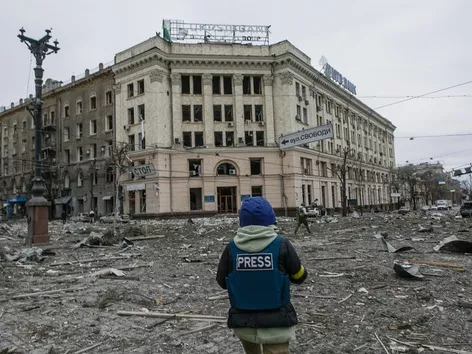
Accidents happen, we see people being rescued, and sometimes we need to be rescued ourselves. However, there are many myths surrounding first aid. Find out what each of us needs to know
Everyone should know the basics of first aid. The precious minutes before the arrival of a doctor are often the time when a person's life can be saved.
Here's what you should remember about first aid, what you shouldn't do, and the basic rules that everyone should know.
The first necessity
Basic first aid can prevent minor accidents from turning into serious ones. In serious situations, it can even save lives. That is why it is so important to learn basic first aid skills.
Melania Podoliak, an instructor at the SAV First Aid Course and 44 Training Centre, emphasises that personal safety is of paramount importance at this point.
You should offer help only if the person being rescued is not in danger. After all, if something happens, you will have to rescue two people.
First of all, do not improvise. You can only work with what you know for sure, so don't come up with something on your own.
Even the most experienced professionals can get confused in a stressful situation and make a mistake. Therefore, it is better to control yourself than to risk someone else's life.
Visit Ukraine on social media: Telegram | YouTube | Instagram | Facebook | Twitter | TikTok
How to provide first aid?
If you find yourself in need of first aid, you should know how to do it correctly. First of all, don't panic, and in order to help properly, you should follow certain rules:
● ensure the complete safety of the victim, yourself and others;
● move the person to another place only if he or she is lying in a dangerous place (on the road, in water or near a fire). Any other situation will only worsen the victim's condition;
● do not place improvised rollers under the victim's head! Instead, simply place a towel or scarf;
● check the victim's vital signs: pulse and breathing;
● contact the specialists (112 from a mobile phone);
● create comfortable conditions for the victim, both physical and psychological.
First aid basics
Artificial respiration
Artificial respiration is the most effective and necessary method of resuscitation.
To perform artificial respiration:
● turn the victim's head to the side, remove foreign objects from the mouth and nasal passages if necessary;
● tilt the victim's head back, holding the neck with your hands;
● pinch the victim's nose with your fingers, press your lips to the victim's lips or nose and exhale strongly into the victim's lungs.
If the victim's chest expands, this is the correct technique.
Indirect heart massage
If the victim has a pulse and is breathing, you do not need to perform indirect heart massage.
Indirect massage helps restore the heart's contractions. After all, if the heart does not contract and cannot pump blood, oxygen does not reach the body's tissues.
If the victim has no pulse, indirect heart massage can be performed as follows:
● place the base of your palm 2-4 cm above the xiphoid process (end of the sternum);
● press on the point with the base of the palm and perform rhythmic pressure.
For young people, use the palm of one hand, for younger children - the index and middle fingers of one hand.
Stop the bleeding
Do not pull out any foreign objects protruding from the injury site.
Bleeding can be venous (apply an aseptic dressing), capillary (apply gauze with cotton wool to the wound and wrap it tightly with a bandage) or arterial (press the artery firmly with your finger or fist).
In case of injuries to the extremities, the best method is to apply a tourniquet just above the wound, for no longer than an hour.
Burns
Eliminate the source of the burn, cut off the clothing around the wound, pour cold water over it, and apply a sterile bandage.
Drowning
Lift the victim out of the water and place him or her in a head-down position, e.g., belly up on your lap, and remove any foreign objects from the airway.
If there is no breathing and no pulse, immediately start indirect heart massage and artificial respiration.
Sunstroke
Move the victim to a cool place away from the sun, remove clothing and shoes, loosen belts, and apply cool towels to the neck and head.
Frostbite
Firstly, move the victim to a warm place, remove their clothes and wrap the frostbitten area. Rub the injured area with vegetable oil or petroleum jelly. Give warm food and fluids.
Epileptic fainting
Do not try to hold the victim. Do not open the jaws or put anything in the mouth.
Do your best to avoid injury if the victim falls.
It is then recommended to place something soft under the head, and to undo the buttons or zips on the neck and chest, if any, to make breathing as easy as possible.
Myths about first aid that can cause harm
Most of the myths about the harm of first aid fall into the category of "folk remedies".
For example, in the case of a burn, the affected area should be cooled under running water, and in no case should it be lubricated with oil, as advised by "folk remedies".
In addition, people who have choked are usually kindly offered a "pat on the back". However, in serious cases, it is better to know how to provide first aid: press on the person's slightly tilted forward abdomen.
You should also not hit a person who is unconscious on the cheek. Ammonia will not help in such cases either - it is toxic and its use is limited by modern medicine.
If a person faints, gently lay them on their side and allow them to recover on their own. In extreme cases, if this is accompanied by other symptoms (e.g. bleeding), do not touch the person until a doctor arrives.
Basic rules and basic knowledge
In many cases, it is necessary to call an ambulance along with first aid, but this is not always necessary.
"Ambulance resources should not be wasted without an urgent need, so a conscious refusal to call an ambulance can save lives," says Hanna Burdyliak, founder of the Ukrainian Cardiology Association.
The first step is to assess the situation. An ambulance should be called in the event of a sudden deterioration in mental or physical condition, accompanied by symptoms that indicate a serious threat, such as bleeding, seizures, fainting, suffocation or acute pain.
Other reasons for calling an ambulance include electric shocks, poisoning, insect or animal bites, and pregnancy problems.
A proper assessment of the situation will also help you understand what actions to take.
For example, in the event of a road traffic accident, there are several possible scenarios for dealing with the victim before the ambulance arrives.
Only if the car is on fire or if the person is not breathing does he or she need urgent resuscitation.
The spine or spinal cord may have been damaged, and only in this case should the head be carefully immobilised and an attempt be made to place it on a stretcher in the same plane as the rest of the body.
If the person is conscious and not in danger, talk to them and reassure them.
How to recognise a stroke and heart attack?
A common reason for calling an ambulance is a suspected stroke or heart attack, and early detection of these conditions can save thousands of lives. These conditions are often fatal.
A heart attack can be suspected if sharp chest pain lasts more than five minutes.
There is a simple algorithm that helps diagnose a stroke:
Arms: inability to raise the arms up at the same time;
Eyes: they may appear to be of different sizes or the corners of the eyes are lowered;
Numbness of the limbs;
Inability to smile;
Speech: the person cannot repeat simple phrases.
If you have at least one of these symptoms, it is recommended to contact the 103 service.
Take care of your own safety
In order to protect yourself from unexpected expenses during your holiday, we advise you to take care of reliable health insurance in advance.
There are three policy options available, including:
● compensation for damages in case of an accident due to military operations or terrorist acts;
● outpatient treatment and hospitalisation
● emergency care.
Read more about the benefits of insurance in Ukraine here.
You may be interested in:
Visit Ukraine Donation - make a good deed and an important contribution to the Victory of Ukraine;
Visit Ukraine Legal advice - comprehensive legal support on entry to Ukraine;
Visit Ukraine Tours - the largest online database of tours to Ukraine for every taste;
Visit Ukraine Merch - choose patriotic clothing and accessories with worldwide delivery;
Visit Ukraine News - get the latest news and updates in our Telegram channel;
Cooperation - cooperation and advertising integrations with Visit Ukraine and Visit World projects.
Recommended articles
2 min
Krieg
Anthony Blinken in Kyiv: what did the US Secretary of State bring to Ukraine?
Blinken arrived in Ukraine for the first time on a two-day visit to discuss the current state of the counteroffensive and further cooperation between the countries. Find out more about what good news for Ukraine (and bad news for russia) the US Secretary of State brought with him
07 Sep. 2023
More details3 min
Der Weg zum Sieg
The Main Intelligence Directorate of the Ministry of Defence of Ukraine is famous for its daring and complex operations behind enemy lines. On the occasion of Military Intelligence Day, we offer you a closer look at the duties of the MIA and recall their most successful operations
07 Sep. 2023
More details3 min
Krieg
Through whose eyes does the world see the war in Ukraine and russia's brutality?
The contribution of Ukrainian and foreign journalists covering the war in Ukraine cannot be overestimated, as they are the ones who tell the truth to the world. Learn more about those whose eyes are showing the world the brutality of the russian invasion
08 Sep. 2023
More details2 min
Ereignisse
This year, the Jewish New Year is celebrated from September 15 to 17, and one head of the Cherkasy RMA is calling on pilgrims to refrain from traveling to Ukraine. Find out why Jews from all over the world continue to travel to Ukraine despite threats from russia
09 Sep. 2023
More details

